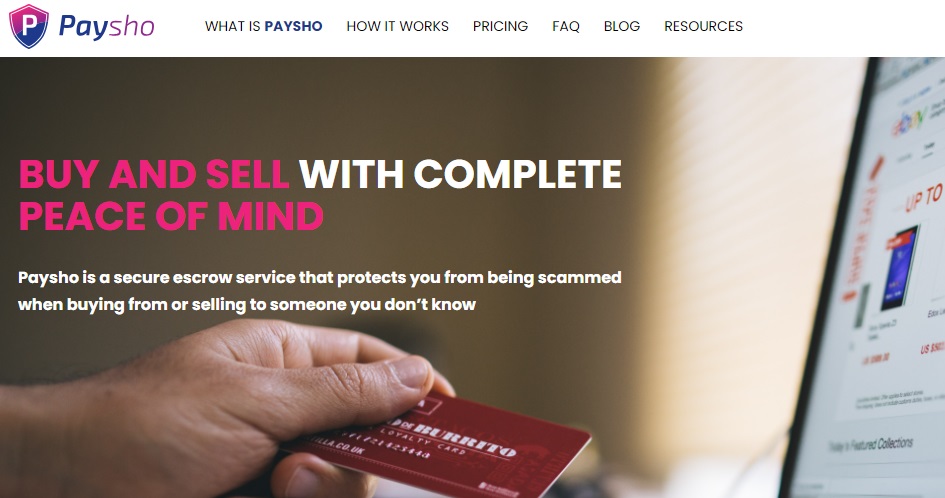South Africa’s Paysho is an escrow service that provides financial protection for buyers and sellers, yet its origins actually lie in a totally different business that founder Bongani Matshisi tried to get off the ground in 2016.
“It’s a Sunday evening in September 2016. I’m sitting at home not really doing anything. The rest of my family is watching a TV show called “Our Perfect Wedding”. This particular episode is featuring a garden wedding. As I glanced at the TV, I noticed that most of the women at the wedding were struggling to walk because their high heels kept sinking into the grass,” Matshisi told Disrupt Africa.
“I remarked to my wife that someone should develop a solution for this problem. She informed me that there was already one. After a quick search on the internet, I found a product called heelstoppers. “Jackpot”, I thought to myself, and immediately placed an order for 50 pairs that I would use to test the market.”
This stock sold out within a week, so Matshisi ordered 500 more pairs and publicised on social media. The majority of sales came from his base in East London, but through social media he started getting enquiries from out-of-town people.
“Some did send me, a complete stranger, money. However, the majority wouldn’t, out of fear of getting scammed. This was a problem for me and my early retirement plans now. Here I was with a great product that everyone was telling me would make me super rich, but I was now being hamstrung by people’s reluctance to buy from someone they couldn’t meet face to face,” he said.
After some research, he discovered that the South African Post Office had in the past offered a cash on delivery service, but had discontinued it, while there was a lack of other such services in the market.
“That was when I made the decision to build my own escrow service. I ditched the heelstoppers – I still have about 100 pairs of the little buggers lying around at home – and put all my energy on building what has come to be known as Paysho,” Matshisi said.
Paysho protects buyers and sellers by safeguarding funds until all parties are satisfied that the terms of any transaction have been met. Whether it is physical goods, digital goods or services, Paysho ensures that all buyers and sellers are protected equally, and can transact with each other in complete peace of mind.
The first version of the site went live in February 2018, completely bootstrapped, as it still is today. Initially, uptake was very slow, or in fact non-existent.
“It took 1,144 days from the day the platform went live until the first completed transaction. And then, out of nowhere, more and more came. 2023 was the best year for Paysho. I guess people are generally warming up to the idea of using escrow services,” Matshisi said.
Paysho makes money by taking a commission on each completed transaction. Matshisi says, as a purely owner-funded operation, the startup is a long way from breaking even. Though he says he has received some investment offers, no good fit has yet been identified.
“There was, and still is, a lot of consumer education about escrow services that needs to happen in South Africa. Very much like the heelstoppers, the majority of the people who need to know about escrow services don’t. It is going to require a lot of investment in consumer education for the market potential to be fully realised by Paysho and its competitors,” said Matshisi.


